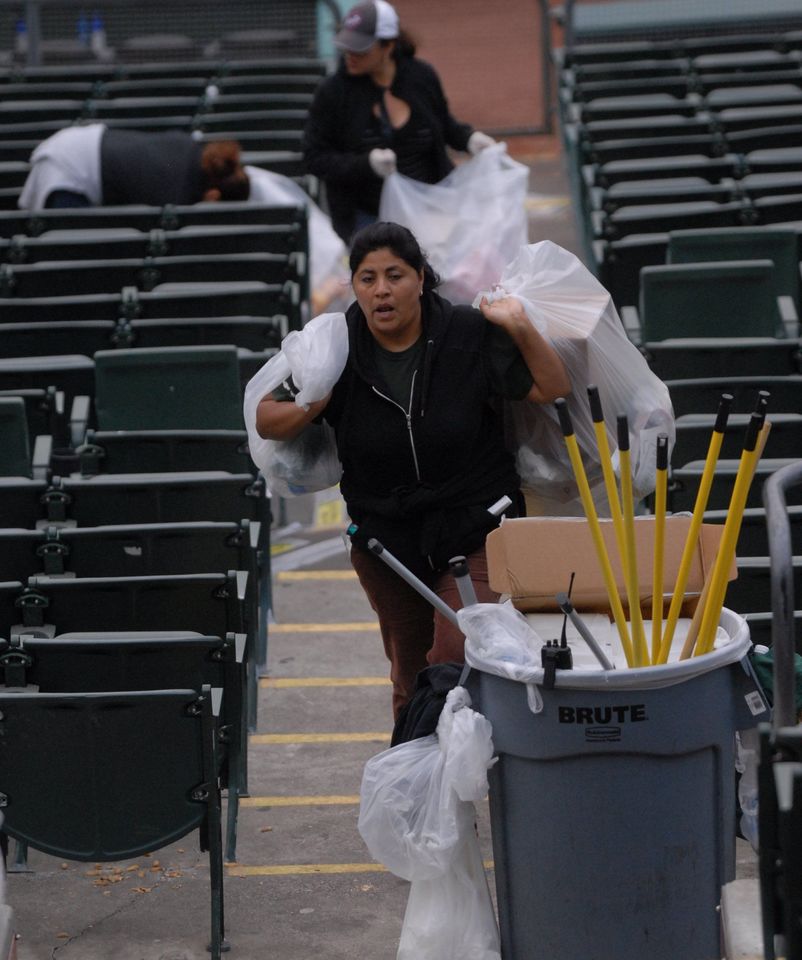Hong Kong News

Japanese fans cleaning World Cup stadiums an example for Hong Kong people
The football World Cup in Qatar has captured the imagination of most sports enthusiasts. Some diehard fans even took time off from work to fly to Doha for the tournament.
This World Cup is being viewed as a test case for the reintroduction and staging of international competitive events in light of the passing of the Covid-19 pandemic, which wreaked havoc on the global sporting scene. Thankfully this year’s contest hasn’t disappointed, with many surprises on and off the pitch.
Of all the unexpected delights so far, one stands out as being exceptional. Following their surprise start (a 2-1 win over four-time world champions Germany on November 23) Japanese fans were seen picking up rubbish in the stands.
Decked out in Japanese team jerseys and armed with rubbish bags, the supporters were seen moving along rows of seats, salvaging cans, bottles and other trash from the stadium floor.
 Japanese fans clean the stand of rubbish at the Ahmad Bin Ali Stadium in
Al Rayyan, Qatar, after their team’s defeat to Costa Rica in the 2022
Fifa World Cup.
Japanese fans clean the stand of rubbish at the Ahmad Bin Ali Stadium in
Al Rayyan, Qatar, after their team’s defeat to Costa Rica in the 2022
Fifa World Cup.
Japan’s Football Association had, in fact, supplied thousands of blue rubbish bags to their team’s fans. Why blue? The national football team is nicknamed Samurai Blue, after the colour of their jerseys, and the idea was to “colour” the various stadiums with blue rubbish bags in homage to the national squad.
Additionally, each bag carried the words “thank you” in Arabic, Japanese, and English. Some Japanese fans even cleaned up after matches in which their home team had not played.
Unfortunately, Japan’s magical World Cup 2022 journey came to an early end with the team’s loss to Croatia on Monday. Yet, win or lose, some Japanese fans persisted in picking up the rubbish of others.
This display of good manners has triggered a massive social media response. Many observers pointed out that such tidying up is not uncommon among Japanese fans, who are known to take care of their own stadiums in similar fashion. They were also seen cleaning up during the last World Cup in Russia in 2018.
 The good habits of Japanese sports fans are not replicated elsewhere.
Here, Oakland A’s baseball team staff clean up the Oakland Coliseum
after a game.
The good habits of Japanese sports fans are not replicated elsewhere.
Here, Oakland A’s baseball team staff clean up the Oakland Coliseum
after a game.
It is not just the fans, but Japan’s soccer stars, too. The national team players left the locker room spotless after their surprise win against Germany at the start of the tournament.
Perhaps Hong Kong could take a leaf out of their book. The Japanese fans have inspired us not only with their cleanliness, but also by demonstrating social consciousness, civic pride, and care for their immediate surroundings, even when far removed from their home city or country.
As a matter of habit, we teach our children to clean up their own mess, but what if that principle were extended to include cleaning up the mess created by others? Wouldn’t this be the ultimate display of selflessness? Because, when it comes to the environment, there should be no boundaries marking out what is “ours” or “theirs”.
Most Hong Kong people – like the Japanese – are accustomed to leaving their shoes at the entrance of their home. In Hong Kong, however, this cleanliness concept seems to extend only to personal spaces, and not to those beyond.
 Fans cheer on the last day of the 2022 Hong Kong Sevens rugby
tournament. In future, Hongkongers in the crowd might want to emulate
the Japanese soccer fans and clear the Hong Kong Stadium stands of
rubbish.
Fans cheer on the last day of the 2022 Hong Kong Sevens rugby
tournament. In future, Hongkongers in the crowd might want to emulate
the Japanese soccer fans and clear the Hong Kong Stadium stands of
rubbish.
What better way to show the world that Hong Kong is a warm, welcoming and wholesome place for visitors than by displaying our love for the city and caring for it as we do our own house?
The next time we host a football match, concert or international tournament – such as last month’s Rugby Sevens – every Hongkonger attending should bring along a few plastic bags to help clean up their rubbish, and that left by others, at the end of the event.
Maybe the government could provide plastic bags at public venues for this task.
In fact, the practice is not entirely alien to Hong Kong. Many local non-government organisations regularly organise clean-up activities on beaches and along hiking trails. Why not expand the effort by encouraging everyone to “bring your own bag” as part of a lifestyle choice, somewhat akin to wearing a mask during Covid?
In schools, we should aim to make cleanliness a part of the syllabus, and drill the habit into our students from an early age.
Taking care of our city as if it were our own home would not only demonstrate pride, but contribute to the very structure of our way of life. If that were to happen, no one would ever again accuse Hong Kong people of being rude and selfish. And they would no longer be able to shun the city as a place unfit for visitors.
In life, as in sports, we should all become proud representatives of our city and country. For every Hongkonger, the most outstanding performance would be to show the world how much they care about the city, even when the world is not watching but just passing through. In fact, that would be even more impressive.











